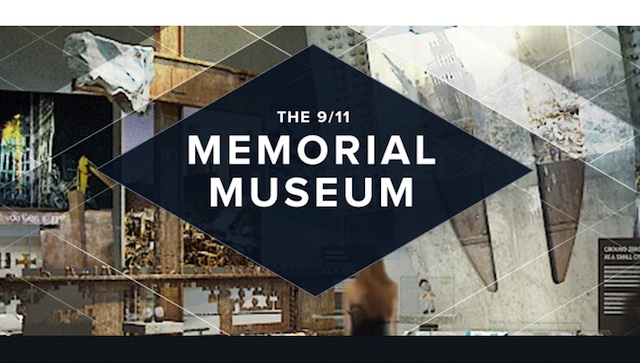Where were you the morning of September 11, 2001? What was the cycle of thoughts and feelings that churned through you that day? How do you tell the story of those events today? While many people say that it was a day that “changed everything”, do you think it really did? These are just a few of the questions I find myself thinking about as New York City’s September 11 Memorial Museum has its official opening today and opens to the public next Wednesday.
Given the various needs and expectations which this institution is expected to meet, there is no way it will satisfy everybody. In fact, I am not sure it will fully satisfy anyone, but for me at least, that is part of the point. There is no way to neatly package a single story of such magnitude, especially as it is so fresh. I hope that is one part of every telling of whatever 9/11 story each of us has – that like all memory of big events, ours are works in progress.
More than measuring the institution, and specifically how well it balances its simultaneous roles as museum, cemetery and yes, theme park, I hope that people will use the museum, or even the fact of its opening, as an opportunity to do what its creators did – think about how we tell the story of 9/11. Do we tell a story of unmitigated pain? Perhaps one of victimization? Do we tell stories of heroism and compassion? Do we think of 9/11 as part of some larger global cultural-political struggle, or perhaps as a moment which demands the asking of tough questions about our own beliefs and commitments?
For me, the answer is ‘yes’ to all of the above.
There is no one way to tell the story of 9/11. What I try to do when I tell my 9/11 story, and what the museum has struggled beautifully to do, is evoke a range of thoughts and feelings which help us feel more acutely, and think more deeply, about the events we recall – not simply draw us to any one conclusion about their meaning. My own work with tragedy memory – both personal and communal – tells me that that is the wisest way to go, certainly while the survivors still walk among us, and quite possibly even long after they have passed.
To learn more about the exhibits and programs at the 9/11 Memorial Museum, please visit the website.
Please also take a moment and read Irwin Kula’s telling of his September 11 story in Remembering 9/11, originally published here at The Wisdom Daily on September 11, 2013:
A few weeks after 9/11, I found myself becoming so angry and bitter and afraid. One day I was reading the New York Times and came across an article that described some of final cell phone conversations of those who perished on 9/11… I was completely overwhelmed by the fact that in the face of terror and in the dearness of the vanishing moment, not one conversation showed any anger or any desire for revenge. Instead, simply and heroically each witnessed a yearning to love and possessed the faith that love ultimately swallows up death. I set some of those sacred words to an ancient Jewish chant of Lamentations which you can listen to… CONTINUE READING AND LISTEN TO THE CHANT

Listed for many years in Newsweek as one of America’s “50 Most Influential Rabbis” and recognized as one of our nation’s leading “Preachers and Teachers,” by Beliefnet.com, Rabbi Brad Hirschfield serves as the President of Clal–The National Jewish Center for Learning and Leadership, a training institute, think tank, and resource center nurturing religious and intellectual pluralism within the Jewish community, and the wider world, preparing people to meet the biggest challenges we face in our increasingly polarized world.
An ordained Orthodox rabbi who studied for his PhD and taught at The Jewish Theological Seminary, he has also taught the University of Pennsylvania, where he directs an ongoing seminar, and American Jewish University. Rabbi Brad regularly teaches and consults for the US Army and United States Department of Defense, religious organizations — Jewish and Christian — including United Seminary (Methodist), Yeshivat Chovevei Torah (Modern Orthodox) Luther Seminary (Lutheran), and The Jewish Theological Seminary (Conservative) — civic organizations including No Labels, Odyssey Impact, and The Aspen Institute, numerous Jewish Federations, and a variety of communal and family foundations.
Hirschfield is the author and editor of numerous books, including You Don’t Have To Be Wrong For Me To Be Right: Finding Faith Without Fanaticism, writes a column for Religion News Service, and appears regularly on TV and radio in outlets ranging from The Washington Post to Fox News Channel. He is also the founder of the Stand and See Fellowship, which brings hundreds of Christian religious leaders to Israel, preparing them to address the increasing polarization around Middle East issues — and really all currently polarizing issues at home and abroad — with six words, “It’s more complicated than we know.”

